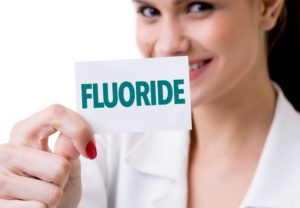 Tooth decay is the most chronic condition for American children; however, you don’t become immune to cavities as you age. 92% of adults have had at least one cavity in a permanent tooth. Fluoride treatments are recommended for children to provide an added layer of protection against decay. Although they are great for young children, do adults need fluoride treatments, too? You’re never too old to benefit from the protection of fluoride.
Tooth decay is the most chronic condition for American children; however, you don’t become immune to cavities as you age. 92% of adults have had at least one cavity in a permanent tooth. Fluoride treatments are recommended for children to provide an added layer of protection against decay. Although they are great for young children, do adults need fluoride treatments, too? You’re never too old to benefit from the protection of fluoride.
Benefits of Fluoride for Adults
Your enamel is the hardest substance on your body, but it will weaken from years of wear and tear. Unfortunately, your enamel can’t regenerate. Once you’ve lost it, it is gone for good. As you age, your risk of cavities increases. Many medications used to treat age-related conditions cause dry mouth. Decreased saliva flow encourages the growth of harmful oral bacteria that can erode your enamel.
Older adults are also prone to gum recession. Whether from aggressive brushing habits or gum disease, the roots of your teeth can be exposed. Not only will they be at risk of decay, but you may also experience tooth sensitivity.
Fluoride can preserve your enamel to safeguard your smile. Fluoride is found naturally, but it is also included in many dental products because it can remineralize the enamel. Often referred to as “nature’s cavity fighter,” you can help turn back the clock on enamel loss to maintain a cavity-free smile.
Candidates for Adult Fluoride Treatments
Not all adults need the added protection of fluoride. Generally, it’s recommended for adults with a moderate to high risk of cavities. Your dentist may recommend a fluoride treatment if:
- You take medications that cause dry mouth.
- Your gum line is receding.
- You’ve had a filling in the last year.
- You have crowns or bridges.
- You are wearing braces.
- You’ve had radiation therapy to the head or neck.
Maintain a Cavity-Free Smile
Besides fluoride treatments, it’s important to combat tooth decay at home. Use a soft-bristled toothbrush and fluoride toothpaste to clean your teeth after every meal. Brush all surfaces of your teeth for 2 minutes. Don’t forget to floss between each tooth daily.
Your dentist will recommend limiting your consumption of sugary foods and beverages. Drink plenty of water to stay hydrated to prevent dry mouth. You can also chew a piece of sugarless gum to encourage saliva production.
Committing to your oral hygiene at home can keep your mouth healthy; however, you’ll still need to visit your dentist at least twice a year for a cleaning and checkup. After examining your mouth, they may recommend additional services, like a fluoride treatment. Your dentist will create a personalized strategy to ensure your smile surpasses the test of time.
About Dr. James Candon
Dr. Candon earned his dental degree at the University of Maryland School of Dentistry. He regularly furthers his education to provide advanced services. He strives to create a comfortable atmosphere while helping his patients achieve their best smiles. If you are concerned about enamel loss, or it’s time for your next cleaning and checkup, contact our office today.
